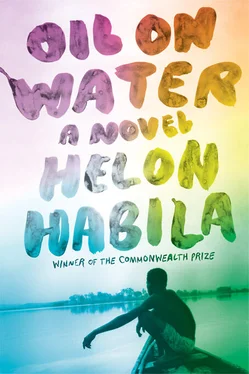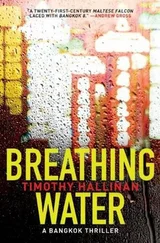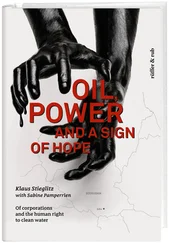One day, early in the morning, Chief Malabo called the whole village to a meeting. Of course, he had heard the murmurs from the young people, and the suspicious whispers from the old people, all wondering what it was he had been discussing with the oilmen and the politicians. Well, they had made an offer, they had offered to buy the whole village, and with the money — and yes, there was a lot of money, more money than any of them had ever imagined — and with the money they could relocate elsewhere and live a rich life. But Chief Malabo had said no, on behalf of the whole village he had said no. This was their ancestral land, this was where their fathers and their fathers’ fathers were buried. They’d been born here, they’d grown up here, they were happy here, and though they may not be rich, the land had been good to them, they never lacked for anything. What kind of custodians of the land would they be if they sold it off? And just look at the other villages that had taken the oil money: already the cars had broken down, and the cheap televisions and DVD players were all gone, and where was the rest of the money? Thrown away in Port Harcourt barrooms, or on second wives and funeral parties, and now they were worse off than before. Their rivers were already polluted and useless for fishing, and the land grew only gas flares and pipelines. But the snake, the snake in the garden wouldn’t rest, it kept on hissing and the apple only grew larger and more alluring each day. And already far off in the surrounding waters the oil-company boats were patrolling, sometimes openly sending their men to the village to take samples of soil and water. The village decided to keep them away by sending out their own patrols over the surrounding rivers, in canoes, all armed with bows and arrows and clubs and a few guns. But daily Chief Malabo was feeling the pressure. As a chief he had no control over the families’ decision about what to do with their land, but as a chief his word carried weight, especially among the elders. But what of the young men who were still grumbling, and looking enviously across the water at the other villages? The canoe patrol was something of a desperate measure, and this soon became very clear. It turned out to be the excuse the oil companies and the politicians who worked for them needed to make their next move. One day the patrol came upon two oil workers piling soil samples into a speedboat. There was a brief skirmish, nothing too serious — one of the oil workers escaped with a swollen jaw, the other with a broken arm — but the next day the soldiers came. Chief Malabo was arrested, his hands tied behind his back as if he were a petty criminal, on charges of supporting the militants and plotting against the federal government and threatening to kidnap foreign oil workers. The list was long — but, the lawyer said, if the elders would consent to the oil company’s demands, sell the land. . A politician, who introduced himself as their senator, came all the way from Abuja and assured them that their situation was receiving national attention, it was in the papers, and he was going to fight for them to see that their chief was returned safe and sound. With him were two white men, oil executives. The villagers chased them away. Others came, but they were all liars, all working for the oil companies, trying one way or another to break the villagers’ resolve. But the villagers remained firm. Chief Malabo, whenever they went to see him, told them not to give in, not to worry about him — but they could see how he was deteriorating every day. And then they went to see him one day and were told he was dead.
Here Chief Ibiram paused in his story, his voice breaking. They were given his body, which was wrapped in a raffia mat and a white cloth, and told to take him away. Just like that. The following week, even before Chief Malabo had been buried, the oil companies moved in. They came with a whole army, waving guns and looking like they meant business. They had a contract, they said, Chief Malabo had signed it in prison before he died, selling them all of his family land, and that was where they’d start drilling, and whoever wanted to join him and sell his land would be paid handsomely, but the longer the people held out, the more the value of their land would fall.
Zaq shifted. — So what happened?
— They sold. One by one. The rigs went up, and the gas flares, and the workers came and set up camp in our midst, we saw our village change, right before our eyes. And that was why we decided to leave, ten families. We didn’t take their money. The money would be our curse on them, for taking our land, and for killing our chief. We left, we headed northwards, we’ve lived in five different places now, but always we’ve had to move. We are looking for a place where we can live in peace. But it is hard. So your question, are we happy here? I say how can we be happy when we are mere wanderers without a home?
The old man Tamuno saw the helicopter first. I couldn’t see anythingfrom where I stood, but I could hear the roar. The fog rose off the water and the mangrove leaves like smoke from wet kindling, blanketing the air and the sky for miles around. Then suddenly the helicopter appeared overhead, shrouded in its engine’s riotous noise, the air pressure from its rotor parting the fog. It banked and cycled and hovered, its weight seemingly borne by the white fog, and I saw the huge oil-company logo on its side. From an open window a guard leaned down, his eyes covered in huge goggles, his machine gun poking through the open window.
— We go. Quick, we go now, please, please.
Tamuno didn’t wait for us; he turned and ran for the boat, his knobby knees knocking against each other. We followed him, awkwardly diving into the boat. I knocked my knee against wood and for a few minutes my left leg was totally paralyzed. I held my knee with one hand and with the other I clung to the side of the boat as the boy tried to bring the engine alive. When it didn’t work, he took the oar and pushed frantically, launching us into the shallow, choppy water. The helicopter followed us, a disinterested bee, watching from a distance. I expected the gunman to start shooting, but nothing happened. The helicopter stayed with us for a few minutes as we progressed slowly toward the distant mangrove cluster on the horizon, then it left. But before our sigh of relief had properly escaped our lips, two speedboats appeared from behind the very mangrove cluster we were making for, their massive bows bearing down on us. In one of the boats a man in a green oilskin jacket raised a loud hailer to his mouth:
— Stop and throw away your oars and weapons. Do it now!
Tamuno quickly and tremulously raised his hands to show he had no weapons. We did the same. The boy threw the oar into the water and crouched on the wet floor between me and Zaq, making himself invisible, peering over the side at the fast-approaching boats. They circled us, guns trained on us. Now we could see the men clearly: they were soldiers, three in each boat, all armed. The names of the boats were printed on their sides in blue cursive characters over a dull white background: one was Mami Wata 1, the other Mami Wata 2. They kept circling slowly, coming close enough to peer into our boat. The man with the loud hailer spoke again, his metallic voice sounding so impersonal, so threatening, in the suddenly cold air:
— You will do as I tell you. If you attempt to escape, or disobey in any way, you will be shot. Leave your boat and swim over to our boats. If you can’t swim, take the rope being lowered and we’ll pull you over. Don’t take anything from your boat.
I went first, plunging into the cold water and grasping blindly for the rope; then the old man, then the boy, and then it was Zaq’s turn. Instead of jumping in the water, he leaned heavily on the side of the heaving boat, trying to reach the rope, and with nothing to counterbalance Zaq’s weight our boat simply keeled over. Zaq went under. I watched helplessly as my tote bag containing my camera and my notebook and all my personal belongings floated briefly on the water before sinking out of sight. I stood up, reaching out, but a gun in my side forced me to sit down again. No one went in to save Zaq. After an eternity he surfaced, spitting out water, holding on to the overturned boat, and somehow he found the rope and was dragged aboard by two soldiers. One of them leaned over and casually shot a round at the overturned boat. We watched as it slowly sank out of sight. I turned away from the horror on the old man’s face as he watched his boat sink beneath a sea of bubbles, and though he opened his mouth to speak, raising his hand like a boy in a classroom, nothing came out of his mouth. He slumped back when the boat finally disappeared. I was in the same boat as Tamuno, while Zaq and Michael were in the other boat. We were seated on a bench side by side, facing the soldiers, who stared back at us through their dark glasses, all except the man with the loud hailer. He had a sergeant’s stripes on his sleeves and he was standing a bit in front of the others, looking calmly at us, his eyes waiting for an explanation.
Читать дальше












